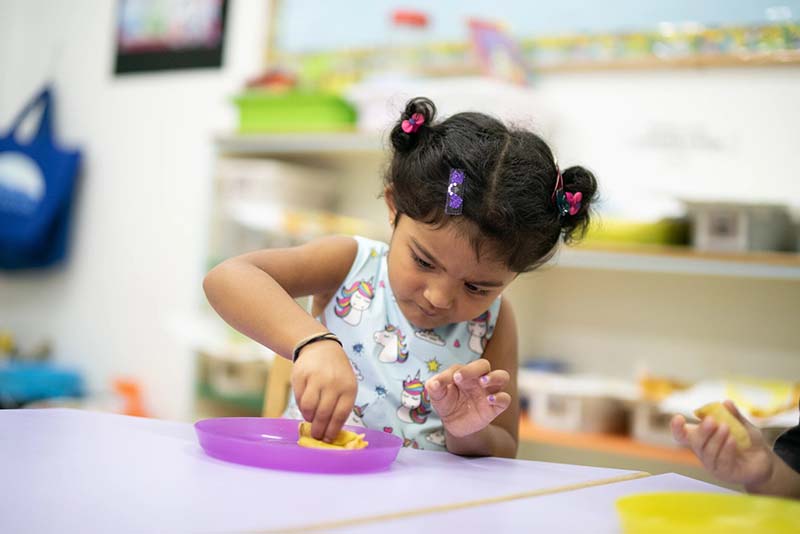Emotions play a fundamental role in learning. Not only do they motivate us to take actions and make decisions, they have a strong influence on how we think and communicate with others. Emotional intelligence has been recognised as an essential skill in the modern world. However, is not an easy skill to teach and often takes time to develop and nurture. This blog will discuss the importance of emotional intelligence and the various ways parents can help foster this in their child/children.
What is emotional intelligence?
Emotional intelligence can be described is an individual’s ability to manage and express their emotions in a healthy way. This includes self-acceptance, empathy and emotional self-regulation.
The importance of emotional intelligence in children
Developing a strong sense of emotional intelligence can enable children to have a better understanding of the behaviours and emotions of the people around them – which is fundamental in building relationships.
For children, the long-term effects of developing their emotional intelligence can include growing their sense of emotional safety, self-awareness, social competence and empathy – all of which are key areas of our core aims, visions and values. These attributes can contribute towards enhanced social, academic, and career success later on in life.
Effective communication skills and self-motivation are also developed through emotional intelligence which is essential for students to become confident learners.
When should you start nurturing emotional intelligence in children?
Though this will gradually develop overtime, you can start talking to your child about their emotions as early as 18 months of age. By the age of four years, most children will start to demonstrate various strategies to eliminate any alarming or distressing stimuli. For instance, they may cover their eyes when they are scared or cover their ears when they hear a loud noise.
It is important to remember that every child is different, therefore may display signs of emotional intelligence at different stages. The key is to be patient and consistent.
What role do parents play in developing children's emotional intelligence?
In his book, ‘Raising an Emotionally Intelligent Child’, Psychologist John Gottman (1998) observed how parents respond to their child’s emotions in an effort to understand how emotional intelligence is developed. He found that parents tend to respond in one of four possible ways.
- Dismissing parents - see their child’s emotions as unimportant and attempt to quickly reject them, often through the use of distraction.
- Disapproving parents - see negative emotions as something that should be eliminated, often through punishment.
- Laissez-faire parents - accept their child’s emotions but fail to help them solve problems or put any limits on inappropriate behaviour.
- Emotion-coaching parents - value both positive and negative emotions and are not impatient with a child’s expression of emotions. They also use emotional experience as an opportunity to bond with their child by offering guidance on problem solving and labelling emotions.
Six ways to nurture emotional intelligence in your child
All children have the capability to learn and develop emotional intelligence skills. The key is to have the right strategy in place when approaching this. Here are some actions you can take:
- Encourage your child to talk about their feelings
Asking your child simple questions such as ‘How was your day? What was great? What was hard?’ on a regularly basis, such as on the way home from preschool, can help them to feel comfortable enough to approach you when a problem or uncomfortable situation arises.
- Lead by example
Children learn through observation. It is important to model emotional intelligence in front of your child. If you find yourself displaying signs that may be detrimental to fostering positive emotional intelligence, such as snapping at others when you are stressed or yelling when you are stuck in traffic, your child may develop this pattern.
- Label your child’s emotions
Helping your child to identify their emotions is the first step to understanding them. This a key example of Gottman’s emotion-coaching parents. A way to approach this is by letting your child explain to you how they are feeling, then helping them name this e.g. ‘it sounds like you are really upset’.
As your child builds their vocabulary, you can support them in identifying new words with different emotions. This will not only help them express different emotions more clearly, it can enable them to interpret and respond to the emotions of others in a suitable way.
- Teach problem solving
This is an essential part of developing children's emotional intelligence as it teaches them that managing their emotions can often be helpful in solving problems. There can be a tendency for parents to want to handle their child’s problems for them. However, the best way to teach this is to help them brainstorm strategies to solve their problems. Not only does this provide an opportunity for autonomy (which is great for personal development), it will help them identify ways to efficiently respond to problems in the future.
It is important to take this approach when problem solving to avoid falling into the ‘laissez-faire parents’ category identified by Gottman.
- Use ‘play’ to help
Learning through play is a great way to encourage exploration, curiosity and communication. As young children may be unable to express their feelings in words, getting them to act this out symbolically can help you identify the emotions they are experiencing. You could also use role-play to act out different scenarios and get your child to discuss how they would feel or respond in a similar situation.
- Empathise with your child
Failing to accept your child’s emotions may give them the indication that their feelings are not justified. This is an example of Gottman’s dismissing parents. A consequence of this may be your child bottling up their emotions in future which could be a sign of low emotional intelligence.
If your child is displaying anger, acknowledge that this may be an indication of deeper emotions such as fear or sadness. Supporting your child to recognise this will speed up the process of dealing with emotions.
Emotional intelligence is an important skill that can take years to learn as we undergo new experiences and challenge. However, nurturing this at an early age can help to set your child for both social and academic success in the future.
The key is to see emotions as an opportunity for teaching, connecting with and further understanding your child.
As a parent or carer, you will play an important role in your child’s emotional development.
Here at White Lodge, we facilitate this by working hard to provide children with opportunities to progress as intelligent, confident, wise and lovable young people. Get in touch with us today to find out more.











